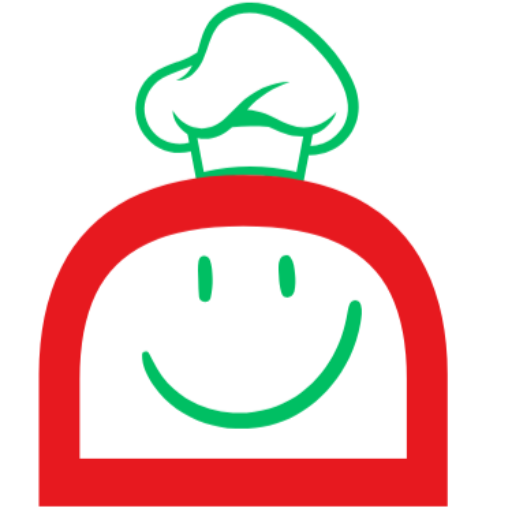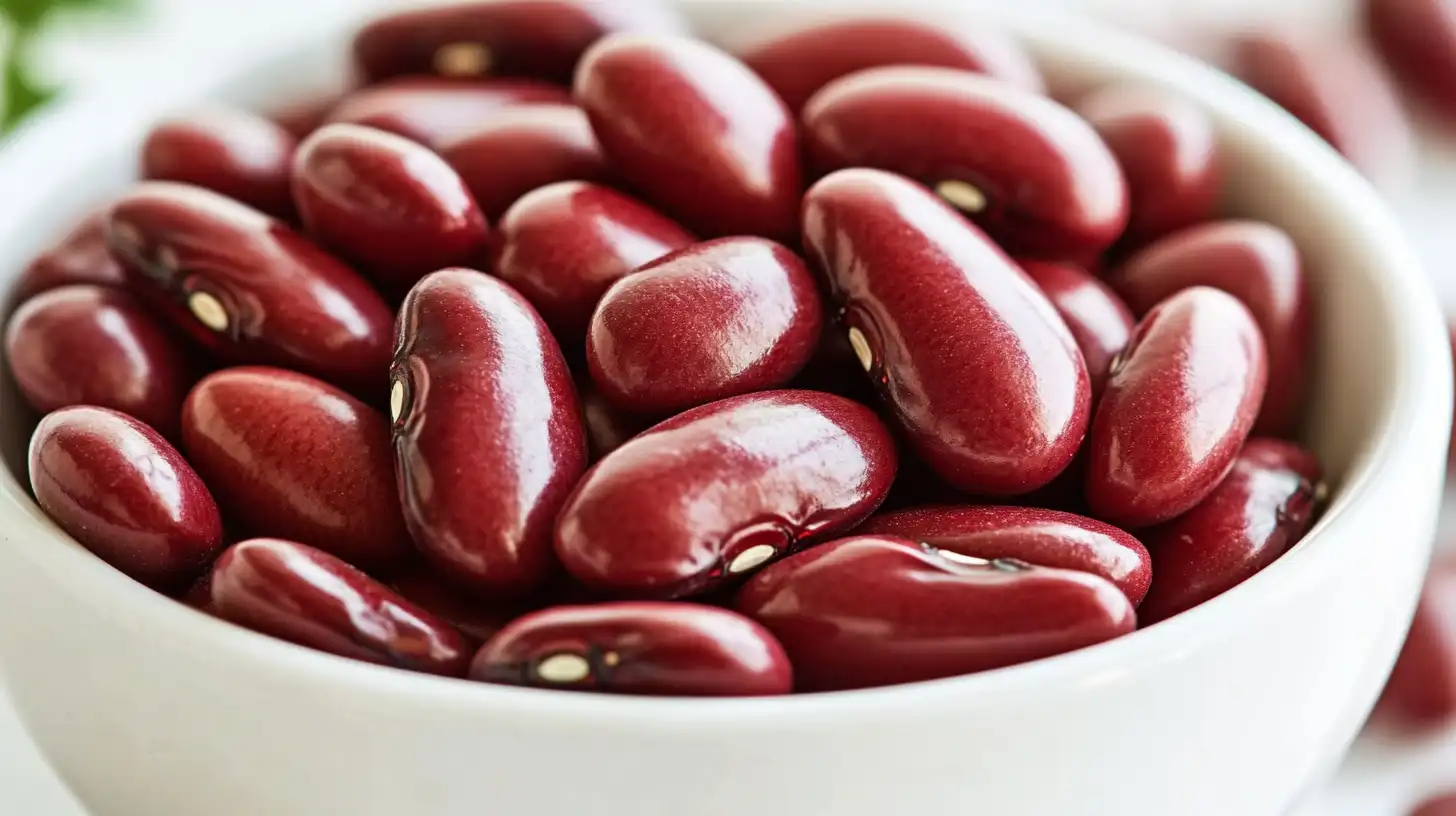Kidney beans are a fantastic source of protein, fiber, and essential nutrients. They’re a staple in many kitchens, used in chili, salads, and soups. However, eating them at the wrong time or in the wrong way can lead to serious health risks.
If you’ve ever wondered, “When should you not eat kidney beans?” or Can kidney beans be harmful? this guide will break down the five most crucial steps to ensure you enjoy kidney beans safely while avoiding potential dangers.
1. Never Eat Raw or Undercooked Kidney Beans
Why Are Raw Kidney Beans Toxic?
Kidney beans contain a natural toxin called phytohaemagglutinin, a type of lectin that can cause severe food poisoning. When should you not eat kidney beans? The answer is simple—never eat them raw or undercooked!
How dangerous are raw kidney beans? According to the U.S.Food and Drug Administration (FDA), Consuming just four to five raw kidney beans can trigger severe symptoms, including:
- Nausea
- Vomiting
- Stomach cramps
- Diarrhea
In extreme cases, raw kidney beans can cause dehydration and require medical treatment.
How to Cook Kidney Beans Safely
To safely prepare kidney beans:
- Soak the Beans: Always soak dried kidney beans for at least 5 hours before cooking.
- Boil Thoroughly: Cook kidney beans at a rolling boill (212°F/100°C) for at least 10 minutes to destroy toxins.
- Avoid Slow Cooking: Slow cookers do not reach high enough temperatures to break down toxins, making them unsafe for cooking kidney beans.
| Cooking Method | Safe to Eat? |
|---|---|
| Raw Kidney Beans | No (Highly Toxic) |
| Soaked Only | No (Still Dangerous) |
| Boiled for 10+ min | Yes (Safe) |
| Slow Cooker | No (Doesn’t Destroy Toxins) |
“Kidney beans are only nutritious when properly cooked. Otherwise, they can be a recipe for disaster.”
Cooking methods matter! If you’re making a hearty soup, be sure to check out our guide on whether to drain hamburger meat for soup to enhance both texture and flavor.
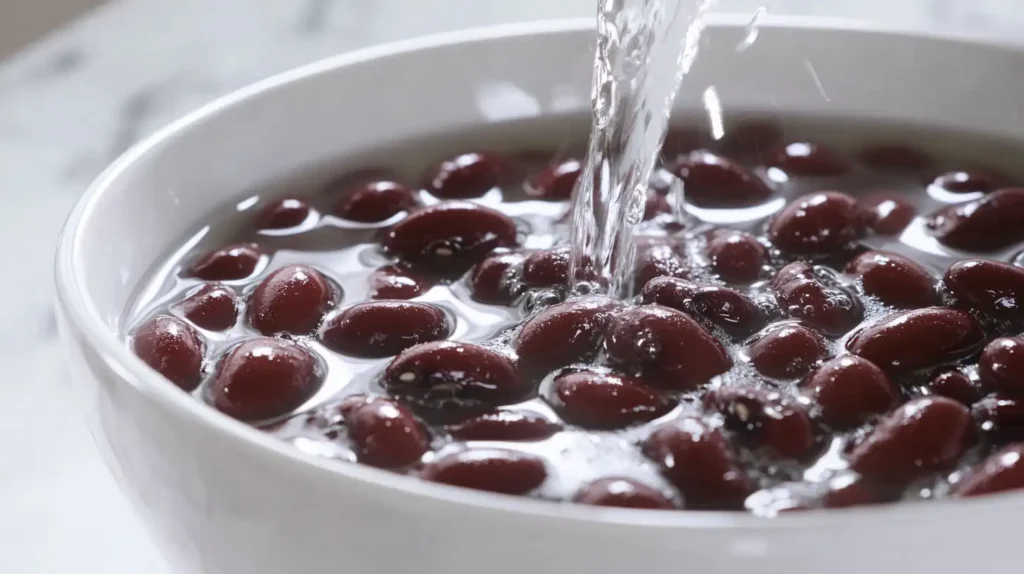
2. When Should You Not Eat Kidney Beans If They Are Undercooked?
Do Kidney Beans Cause Bloating?
Kidney beans contain complex carbohydrates and fiber, which can be difficult for some people to digest.
When should you not eat kidney beans? for individuals with Irritable Bowel Syndrome (IBS) or a sensitive gut, kidney beans can cause:
- Gas
- Bloating
- Stomach cramps
- Diarrhea
How to Reduce Digestive Discomfort
- Soak the Beans Longer: Let them soak for 8-12 hours to break down hard-to-digest sugars.
- Start with Small Portions: If you’re new to eating beans, introduce them gradually.
- Pair with Digestive-Friendly Foods: Eating kidney beans with rice, lean proteins, or probiotic foods like yogurt can improve digestion.
| Digestive Issue | Can You Eat Kidney Beans? |
|---|---|
| IBS (Severe) | No (May Trigger Symptoms) |
| Mild Sensitivity | Yes (In Small Portions) |
| No Issues | Yes (Enjoy Freely) |
3. When Should You Not Eat Kidney Beans If They Are Undercooked?
Are Kidney Beans an Allergen?
If you have a legume allergy, when should you not eat kidney beans? The answer is anytime you experience symptoms after eating them. Allergic reactions can include:
- Itchy skin or hives
- Swelling of the lips, tongue, or throat
- Stomach pain or vomiting
- Trouble breathing (in severe cases)
How to Know If You’re Allergic
If you suspect a legume allergy, try an elimination diet or consult an allergist. Even if you don’t have a severe allergy, mild intolerance could still cause digestive discomfort.
“Not all healthy foods are good for everyone. Listen to your body—it knows best.”
4. When Should You Not Eat Kidney Beans If You Have Kidney Disease?
Are Kidney Beans Bad for Your Kidneys?
Despite their name, kidney beans are not always good for kidney health. They contain high levels of potassium and phosphorus, which can be dangerous for people with chronic kidney disease (CKD).
When should you not eat kidney beans? If you have kidney disease, consuming too much potassium can lead to:
- Heart complications
- Muscle weakness
- Fatigue
Can You Eat Kidney Beans with Kidney Disease?
| Kidney Condition | Safe to Eat Kidney Beans? |
|---|---|
| Healthy Kidneys | Yes (In Moderation) |
| Early Kidney Disease | Limit Intake |
| Advanced Kidney Disease | No (Best to Avoid) |
Kidney-Friendly Alternatives
If you have kidney disease, swap kidney beans for lower-potassium foods like:
- Green beans
- Squash
- Zucchini
If you’re looking for kidney-friendly meals, you might want to try a low-potassium alternative like this Squash and Kidney Beans Recipe, which balances nutrition and flavor without overloading on potassium.
To explore other comforting meals? Our Hamburger Potato Soup Recipe is a great option for a cozy, protein-packed dish.
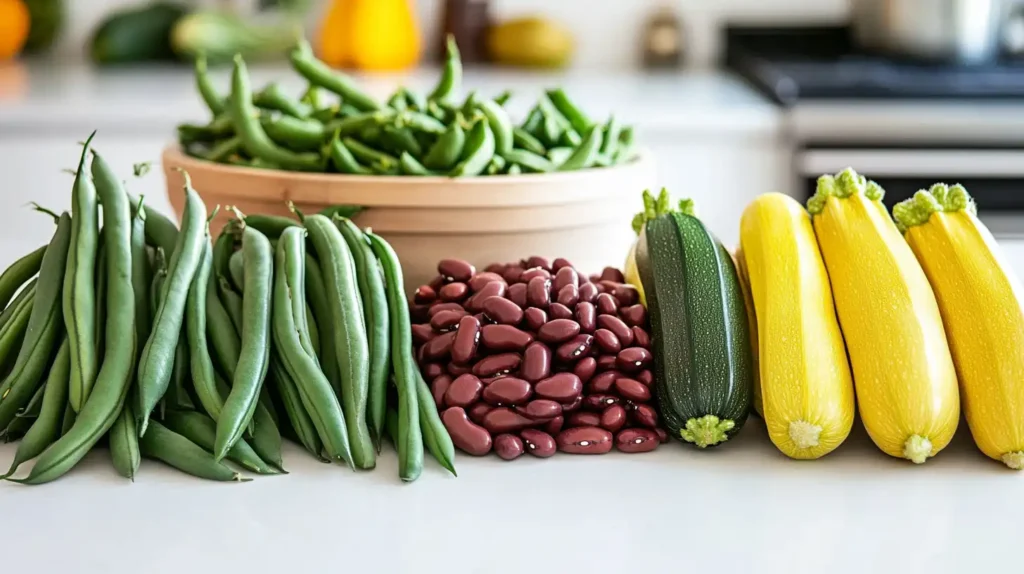
5. When Should You Not Eat Kidney Beans With Nutrient Blockers?What Blocks Kidney Bean Nutrients?
Certain foods can prevent your body from absorbing the full benefits of kidney beans. When should you not eat kidney beans? When they are paired with:
- Tea & Coffee (Tannins block iron absorption)
- Dairy Products (Calcium interferes with iron uptake)
- Spinach & Beets (Oxalates bind with iron)
How to Get the Most Nutrition from Kidney Beans
To maximize absorption, pair kidney beans with:
Healthy fats (olive oil, avocado)
Vitamin C-rich foods (tomatoes, bell peppers)
Some Foods Reduce Nutrient Absorption
Certain foods can block the absorption of key nutrients in kidney beans. If you pair them with the wrong foods, you might not get all their benefits.
Foods That Interfere with Kidney Beans’ Nutrients:
- Tea & Coffee (Tannins block iron absorption)
- Dairy Products (Calcium interferes with iron uptake)
- Spinach & Beets (Oxalates bind with iron, making it harder to absorb)
How to Maximize Nutrient Absorption
- Pair kidney beans with Vitamin C-rich foods (like tomatoes or bell peppers) to boost iron absorption.
- Add healthy fats (like olive oil or avocado) to improve nutrient absorption.
- Eat kidney beans with fermented foods (like kimchi or yogurt) to support digestion.
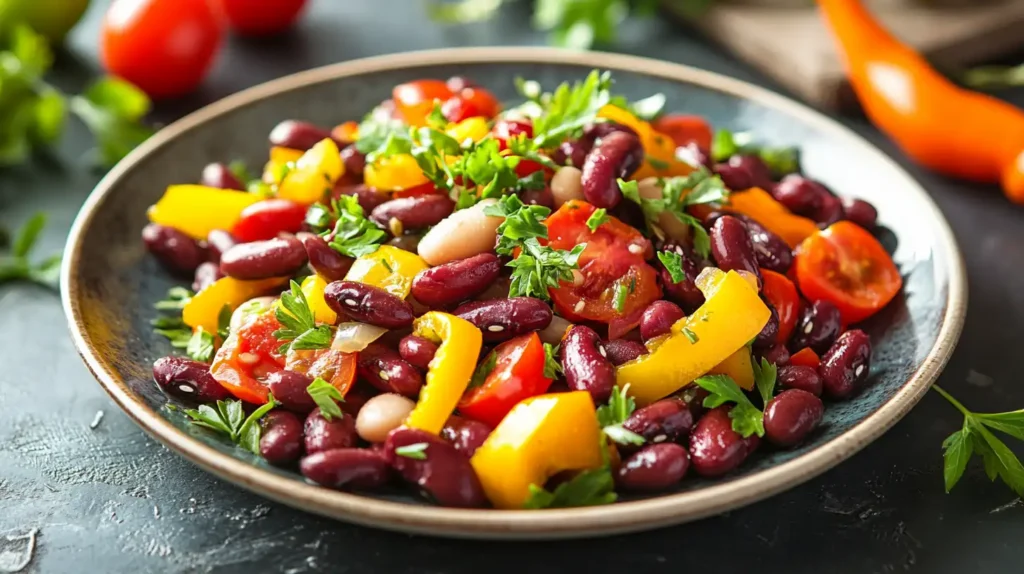
FAQs
When should you not eat kidney beans?
You should avoid kidney beans when they are raw or undercooked, if you have a legume allergy, IBS, or kidney disease, or if they cause digestive discomfort.
Are kidney beans good for you or bad for you?
Kidney beans are nutritious when properly cooked, but they can be toxic if eaten raw and harmful for people with kidney disease or legume allergies.
What organ are kidney beans good for?
Kidney beans support heart health, digestion, and blood sugar regulation, but they may not be ideal for people with kidney disease due to their potassium content.
Is squash and zucchini kidney-friendly?
Yes, squash and zucchini are low in potassium and safe for people with kidney disease.
Final Thoughts: When Should You Not Eat Kidney Beans?
Kidney beans are packed with essential nutrients, but they can also pose serious health risks if not prepared properly. When should you not eat kidney beans? You should avoid them when they are raw or undercooked, if you have a legume allergy, digestive sensitivities, kidney disease, or when paired with nutrient-blocking foods.
By following the right preparation methods and understanding when to avoid them, you can safely enjoy the many benefits kidney beans have to offer. Always cook them thoroughly, listen to your body, and make informed dietary choices to stay healthy.
